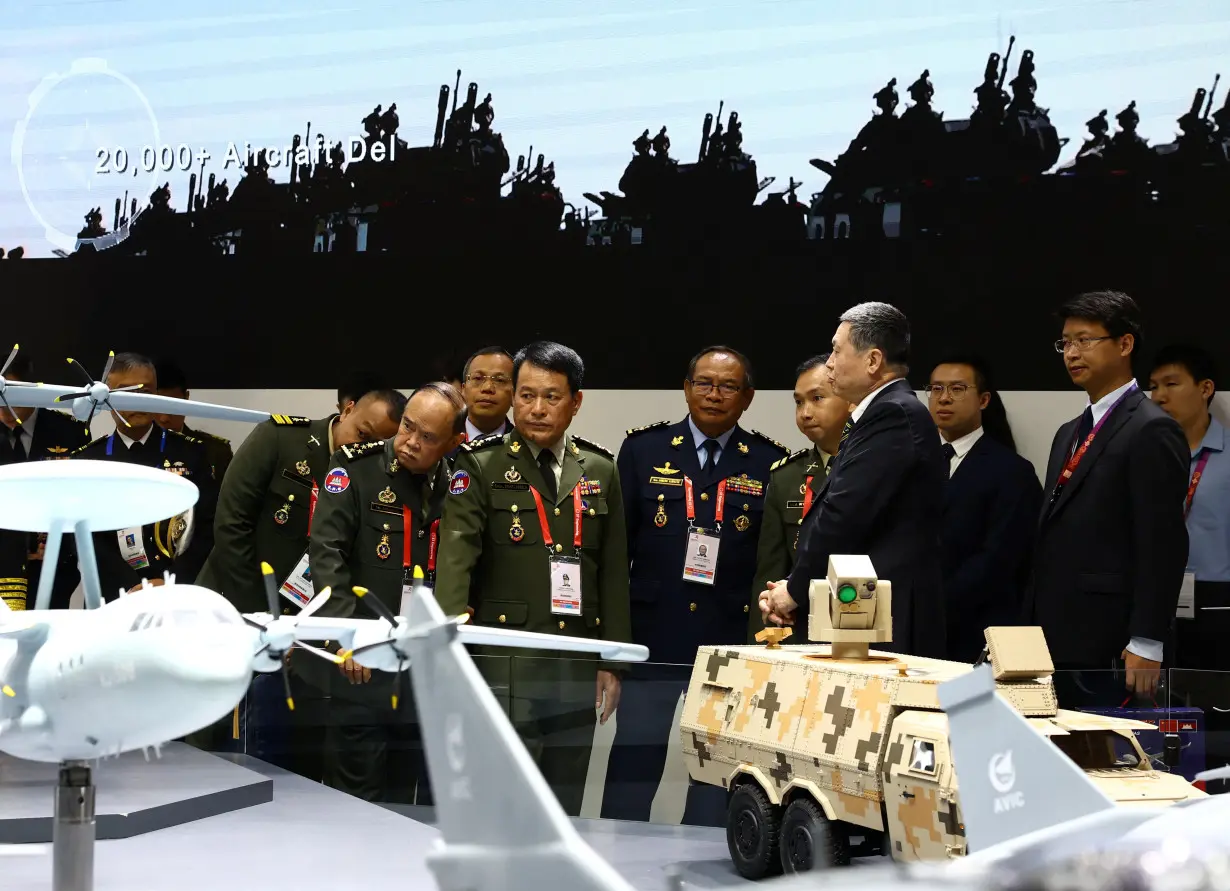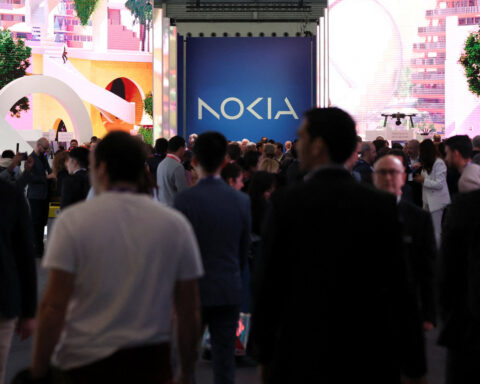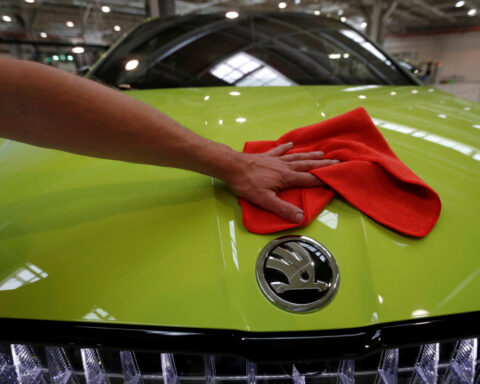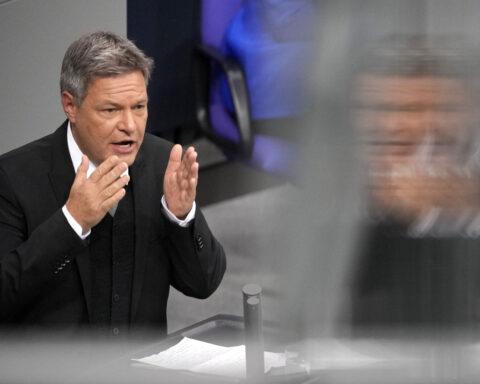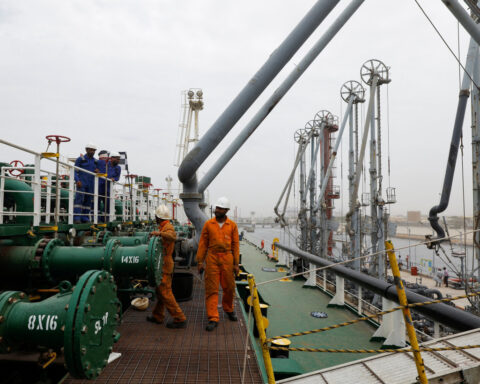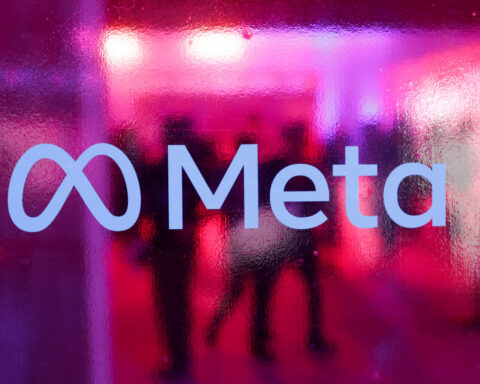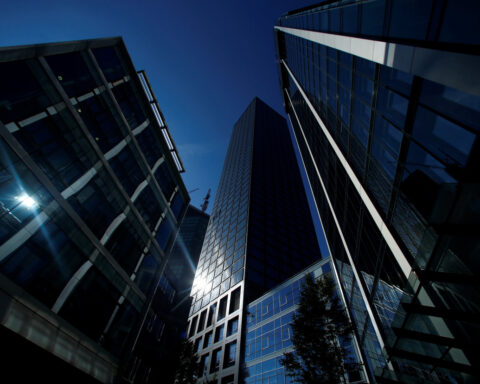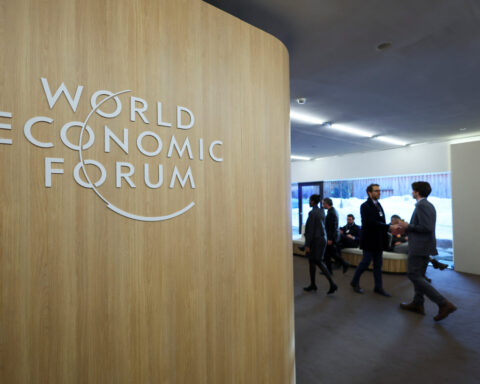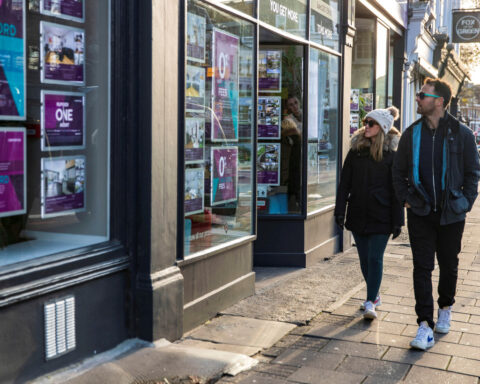By Lisa Barrington, Brenda Goh and Joe Brock
SINGAPORE (Reuters) - Singapore on Tuesday kicked off Asia's biggest air show - the first in six years unaffected by pandemic restrictions - as the global aviation industry grapples with a full rebound in travel demand in the face of severe supply constraints.
More than 1,000 companies from more than 50 countries are participating in the biennial commercial and defence-focused Singapore Airshow, organiser Ravinder Singh said at the opening ceremony, led by Western industry giants such as Airbus, Boeing and Lockheed Martin and their Chinese competitors such as COMAC and AVIC.
Russian companies like Russian Helicopters and Irkut that attended past editions of the show are not participating this year amid the war in Ukraine. However, Israeli companies Israel Aerospace Industries and Rafael Advanced Defense Systems which dropped out of the Dubai Airshow in November amid the Israel-Hamas war in Gaza have come to Singapore.
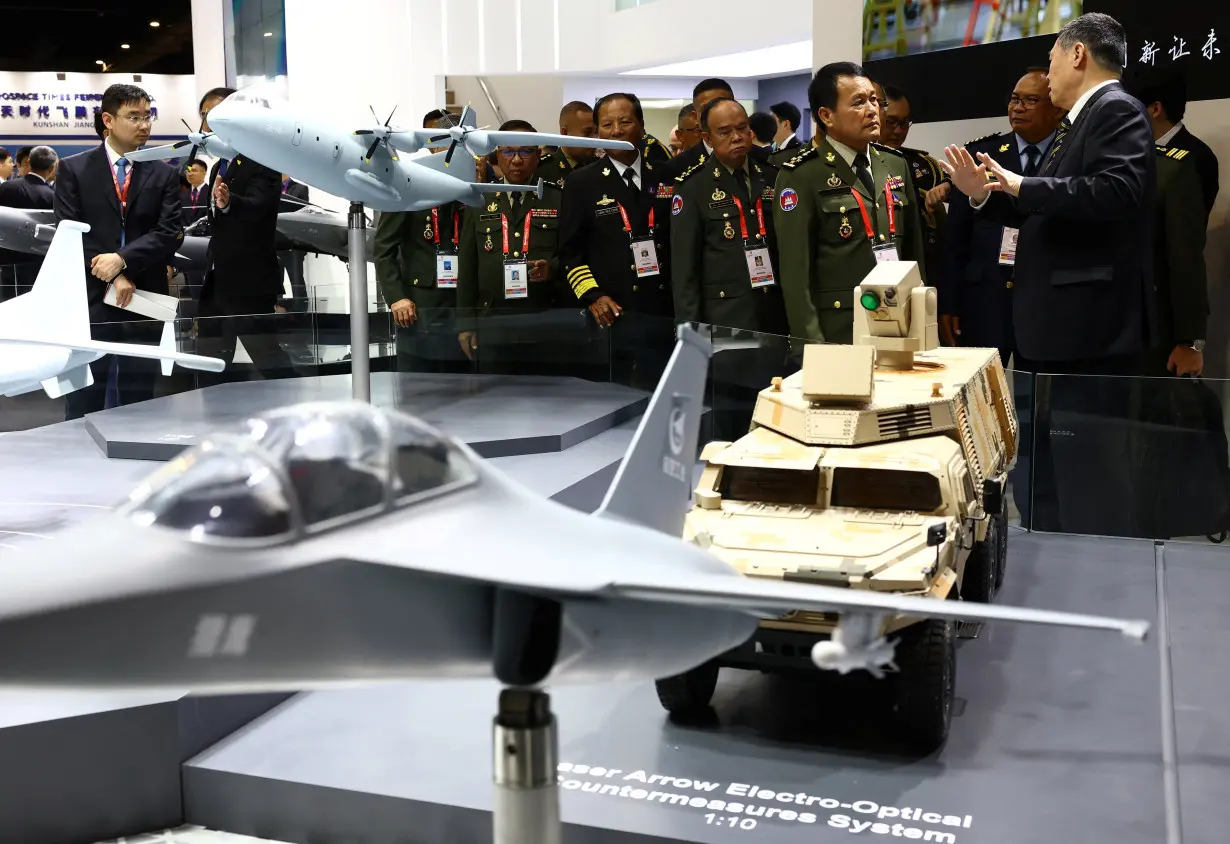
The flying display will feature military aircraft from Singapore, Australia, India, Indonesia, South Korea and the U.S., as well as the COMAC C919 commercial jet's first appearance outside Chinese territory and an Airbus A350-1000 powered in part by sustainable aviation fuel.
The strong international participation comes as borders have fully reopened after COVID-19.
By the end of 2023, travel demand had made a near-full recovery from pre-pandemic levels in 2019, with domestic travel running 4% higher than pre-COVID levels and the international market lagging at 88% mostly because of China's slower rebound, according to International Air Transport Association data.
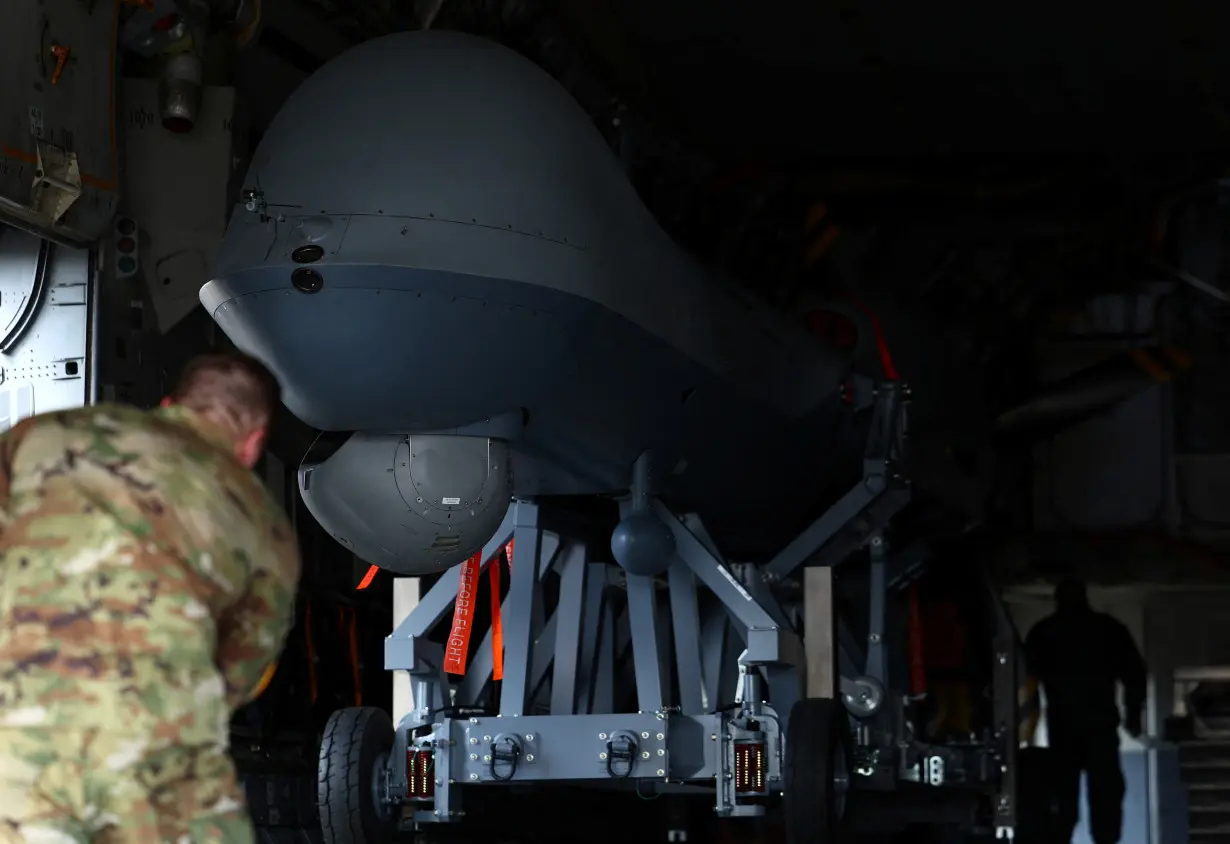
"When I look at 2023, in effect, I'm looking at an industry that I think is very similar in shape and size to what we saw in 2019," IATA Director General Willie Walsh said at a pre-show summit on Monday. "So going forward, I think you should expect us to stop making reference back to 2019 and to start looking at the industry in a normal way."
However, major suppliers, planemakers and engine producers have struggled to keep up with the rebound in demand after the sharp downturn during COVID-19 led to job losses, freight snarls and an industry skills shortage.
Boeing, in particular, is under scrutiny after the mid-air blowout of a cabin panel on an Alaska Airlines 737 MAX on Jan. 5 led the U.S. Federal Aviation Administration to take the unprecedented step of freezing production of its best-selling single-aisle plane at 38 per month.
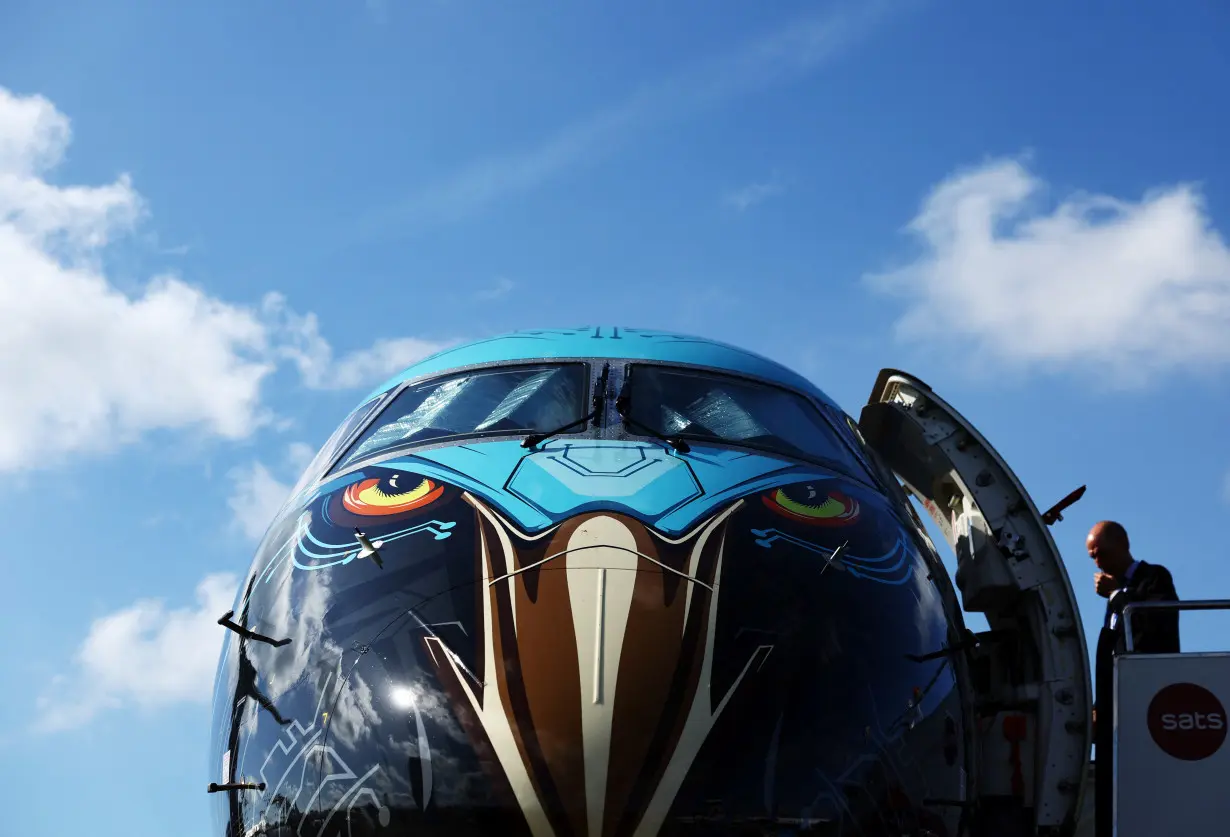
Airbus this month announced a further delay in entry to service of its long-range A321XLR single-aisle jet to the third quarter from the second. Suppliers told Reuters that Airbus is producing around 50 A320neo family jets a month compared to a production plan that had foreseen 58 by end-2023.
The production issues are delaying the ability of airlines to replace older jets with more fuel-efficient models as the industry looks to meet its goal of "net zero" emissions by 2050.
Airlines are also looking to buy as much sustainable aviation fuel as possible to help lower their carbon emissions, even though it costs up to five times as much as conventional jet fuel.
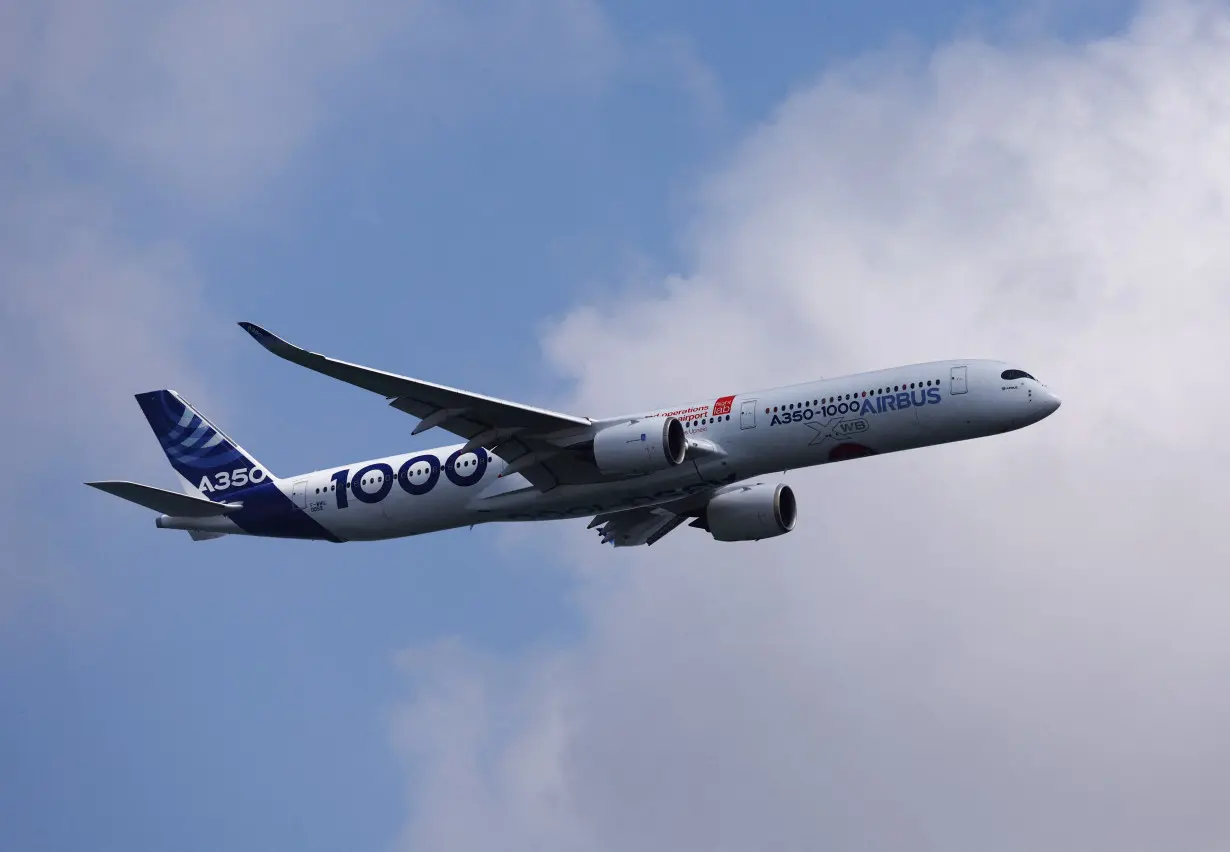
In Singapore, travellers will need to bear the cost of the transition towards green jet fuel, its transport minister said on Monday, as he announced the city-state's plans for a levy on departing flight ticket prices from 2026.
(Reporting by Lisa Barrington, Brenda Goh and Joe Brock; Writing by Jamie Freed; Editing by Michael Perry)

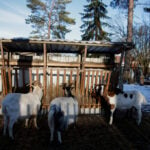 Germany sees meat exports to EU continuing after foot-and-mouth case
Germany sees meat exports to EU continuing after foot-and-mouth case
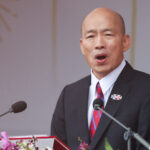 Parliament speaker to lead Taiwan delegation to Trump's inauguration
Parliament speaker to lead Taiwan delegation to Trump's inauguration
 German economy contracted 0.2% in 2024
German economy contracted 0.2% in 2024
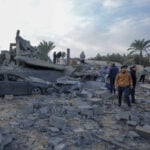 Middle East latest: Palestinian prime minister says Palestinian Authority should run Gaza in future
Middle East latest: Palestinian prime minister says Palestinian Authority should run Gaza in future
 Nokia signs multi-year patent license agreement with Samsung
Nokia signs multi-year patent license agreement with Samsung
 Irish parties secure 'comfortable majority' for new government
Irish parties secure 'comfortable majority' for new government
 Bayern Munich signs US youngster Bajung Darboe from LAFC
Bayern Munich signs US youngster Bajung Darboe from LAFC
 Novak Djokovic breaks a tie with Roger Federer for the most Grand Slam matches in tennis history
Novak Djokovic breaks a tie with Roger Federer for the most Grand Slam matches in tennis history
 China's RedNote: what you need to know about the app TikTok users are flocking to
China's RedNote: what you need to know about the app TikTok users are flocking to
